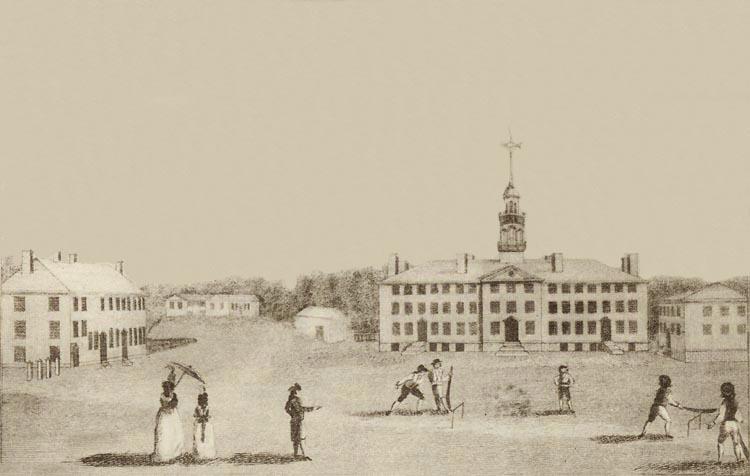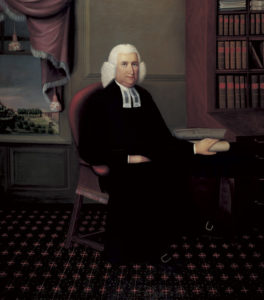By Edward T. Howe
Eleazar Wheelock was a notable eighteenth-century farmer, Congregational minister, revivalist, educator, and founder of Dartmouth College. Born on April 22, 1711, in Windham, he was one of five surviving children of Ralph and the former Ruth Huntington, who were successful farmers. He graduated from Yale College in 1733, with a co-shared prize in classics. After receiving a license to preach from Yale in 1734, he became a pastor at the Second (North) Congregational Church of Lebanon in 1735 where he served for thirty-four years. Married twice (to Sarah Davenport in 1735 and Mary Brinsmead in 1747), he had eight children and two stepchildren in a “family” that also included students for college preparation and several slaves.
Wheelock’s early ministry coincided with the religious revival of the First Great Awakening of the 1730s and 1740s. The movement sought to energize the devout fervor of the faithful that had waned in previous decades. The basic themes of the Great Awakening—advocated by Wheelock, Jonathan Edwards, George Whitefield, and other preachers—stressed that all people were born sinners but could attain salvation by confessing their sins directly to God to receive forgiveness and avoid damnation. Viewed as a growing threat to established teaching and neglectful of his parish, the Connecticut Assembly divested Wheelock of his salary in 1743. He sought to replace his income through tutelage and accepted Samson Occom, a Mohegan Native American, as his first student. Occom went on to become a well-known Presbyterian minister to the Pequot Indians.
Encouraged by Occom’s success, Wheelock established Moor’s (More’s) Charity School in Lebanon in 1754, aided by land and buildings donated by its benefactor, Joshua More. This was one of the more significant attempts in the colonies to convert Native Americans to Christianity and prepare them for tribal missionary work among their people. Although the grammar school succeeded at fundraising, the results of its educational efforts were mixed. From 1754 to 1768, Wheelock and his staff increasingly grew disheartened when many of the students died, withdrew to their homeland, or struggled with personal problems after graduation.
Dartmouth College
By 1760, Wheelock had begun to think about expanding his school by providing college instruction—primarily for white students—in literature, philosophy, and such classical subjects as grammar, mathematics, and Latin. Needing more financial support, Wheelock sent Occom and Nathaniel Whitaker (another Presbyterian minister) to England in 1765. Most of the funds they raised were put in charge of a British board of trustees headed by William Legge, Earl of Dartmouth. Wheelock also contacted the Royal Governor of New Hampshire, John Wentworth, who provided land and secured a charter from King George III for the new college. A rift occurred when Occom and Legge opposed Wheelock’s plan, fearing loss of control over the English funds. Nevertheless, Wentworth granted the charter for Dartmouth College on December 13, 1769.
By August of 1770, Wheelock had moved his family—including slaves—from Lebanon to Hanover, New Hampshire, on the western bank of the Connecticut River. His first four college students attended class in a temporary log hut later that year.
Over the next nine years, as enrollment in the missionary school dwindled, Wheelock worked in primitive conditions as president and professor of divinity at the college, pastor of the local church, and activist in the development of the town. He died on April 24, 1779, and was buried in the town cemetery. His son, John, succeeded him at Dartmouth, serving as its president for the next thirty-six years.
Edward T. Howe, Ph.D. is Professor of Economics Emeritus at Siena College near Albany, New York.









